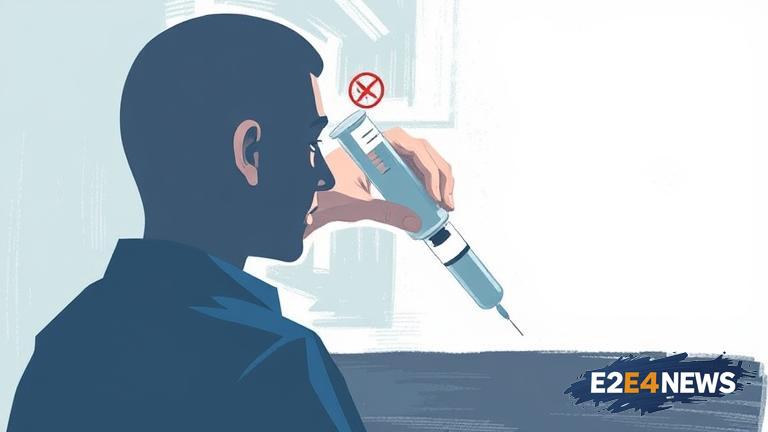In a significant development, a court has decided to consolidate several cases related to religious vaccine exemptions, bringing together various plaintiffs who claim that mandatory vaccination policies infringe upon their constitutional rights. This move is expected to streamline the legal process and provide a clearer understanding of the issues at hand. The cases in question involve individuals who object to vaccination on religious grounds, citing concerns about the use of fetal tissue in vaccine development and other moral objections. The plaintiffs argue that the government’s vaccination policies are overly broad and fail to provide adequate exemptions for those with sincerely held religious beliefs. On the other hand, public health officials and proponents of vaccination argue that mandatory vaccination policies are essential for preventing the spread of infectious diseases and protecting vulnerable populations. The consolidation of these cases is seen as a strategic move to address the growing number of vaccine exemption requests and to provide a unified response to the legal challenges posed by these cases. The court’s decision is likely to have far-reaching implications for the ongoing debate about vaccine exemptions and the balance between individual freedoms and public health concerns. As the cases move forward, it is expected that the court will consider a range of factors, including the sincerity of the plaintiffs’ religious beliefs, the potential risks and benefits of vaccination, and the government’s interest in protecting public health. The plaintiffs’ lawyers have argued that the government’s vaccination policies are discriminatory and fail to provide adequate accommodations for individuals with religious objections. In response, the government has argued that its policies are necessary to prevent the spread of infectious diseases and that exemptions would undermine the effectiveness of vaccination programs. The court’s decision to consolidate the cases is seen as a positive step towards resolving the ongoing debate about vaccine exemptions. However, the outcome of the cases is far from certain, and it is likely that the issue will continue to be contested in the courts for some time to come. The vaccine exemption debate has sparked a heated discussion about the role of government in regulating public health and the limits of individual freedom. While some argue that vaccination is a fundamental aspect of public health policy, others claim that it is an infringement upon their personal autonomy. The issue has also raised questions about the nature of religious freedom and the extent to which it can be used to justify exemptions from vaccination policies. As the cases progress, it is likely that the court will be required to navigate these complex issues and provide a clear ruling on the scope of religious exemptions from vaccination policies. The implications of the court’s decision will be far-reaching, with potential consequences for public health policy, individual freedoms, and the ongoing debate about vaccine exemptions. In recent years, there has been a growing trend towards increased vaccination rates, driven in part by concerns about the spread of infectious diseases. However, the vaccine exemption debate has highlighted the ongoing challenges faced by public health officials in balancing individual freedoms with the need to protect public health. The consolidation of the cases is seen as a significant step towards resolving these challenges and providing a clearer understanding of the issues at hand. Ultimately, the outcome of the cases will depend on the court’s interpretation of the relevant laws and the evidence presented by the parties involved. As the debate continues, it is likely that the issue of vaccine exemptions will remain a contentious and highly debated topic. The court’s decision to consolidate the cases has sparked a renewed discussion about the balance between public health and individual freedoms, with many arguing that the government’s vaccination policies are essential for preventing the spread of infectious diseases. Others, however, claim that the policies are overly broad and fail to provide adequate exemptions for those with sincerely held religious beliefs. The issue has also raised questions about the nature of religious freedom and the extent to which it can be used to justify exemptions from vaccination policies. As the cases move forward, it is likely that the court will be required to navigate these complex issues and provide a clear ruling on the scope of religious exemptions from vaccination policies.
